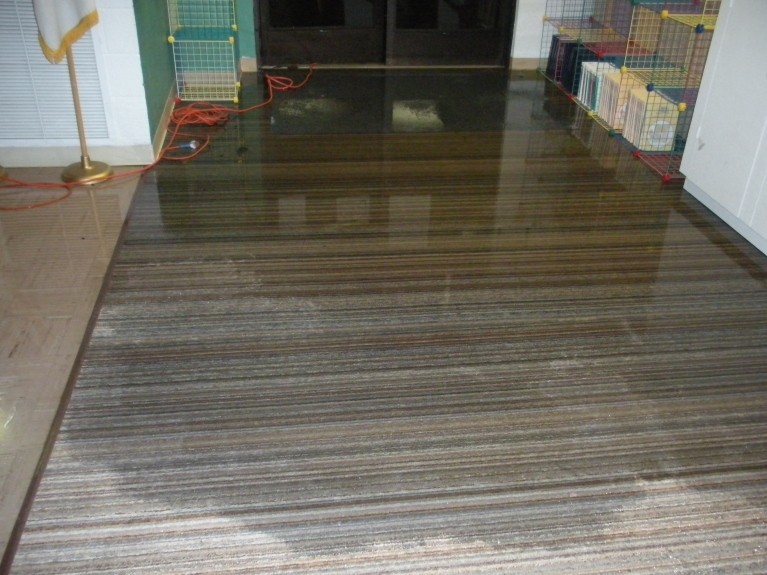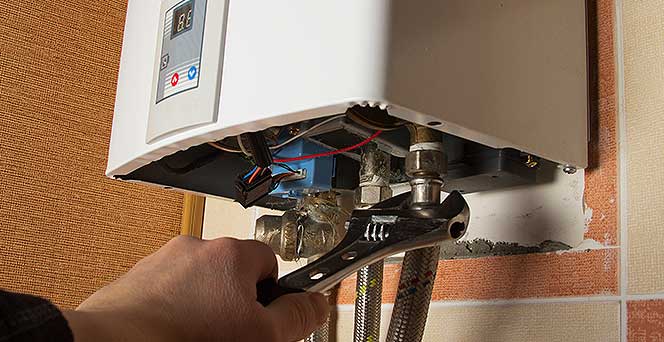What are your thoughts on Broken Water Heaters?

Whether it is located in the basement or a separate area, damaged water heating units can create stress. Having no warm water supply is additionally frustrating.
Call the Plumber
After doing the very first 2 security actions, you must call your plumber to come right away to take care of a fractured water heating unit. There are normally indicators that your aging water heater has sediment accumulation in the inside.
Rather, as soon as you spot these indicators, have a specialist come to check your water heater storage tank. Typically, water heating systems have a lifespan of regarding 8 to 12 years.
Cut Off the Cold Water Supply
Cut off the containers tap water supply from the resource. When your container is in great condition, the chilly water stops filling up when the storage tank is full. If you can not find it or reach it, you have to turn off that primary water supply line outside your residential property.
Shut Down Power Source
Prior to calling the plumber, shut off a gas water heating system by transforming the temperature level dial. This will certainly stop electrocution, especially if there is a leakage as water is a conductor. Generally, the home heating aspect shuts off when the water hits a specific temperature.
Clean Up Building
After calling the plumber, record damage by taking notes as well as images so you can claim your home owner's insurance coverage. From there, begin the prompt cleanup. Secure any kind of important items to prevent additional saturating. Eliminate any standing water to protect against mold and mildew and also mold growth. If you have a submersible water pump, utilize that to drain pipes the water. Otherwise, the standard container method will likewise work. Try to mop out everything, including wall surfaces as well as baseboards. If you have an electrical fan and dehumidifier, maintain them running to maintain air distributing. This will certainly assist hinder mold development.
Bear in mind, if you observe any problems with your water heater, call the pros right away. You can not take this trouble lightly since a faulty thermostat can increase water temp to a precariously high degree, leading to unintentional burns.
After doing the initial 2 safety steps, you have to call your plumber to come right away to fix a burst water heating unit. Rather, as quickly as you spot these signs, have an expert come to check your water heating system container. Prior to calling the plumber, closed off a gas water heating system by transforming the temperature dial. If you have a submersible water pump, make use of that to drain the water. Remember, if you observe any type of problems with your water heating system, call the pros right away.
Is My Water Heater Broken?
The Water Heater is Old
No appliance will last forever. This includes a home’s water heater. During its lifespan, residents are going to face a situation where a new water heater installation will be necessary. The biggest problem with this is that most people are not sure when their water heater expires. Not knowing this can lead to serious risks if the unit begins to act up due to old age.
Most makes and models of water heaters will last between eight and 10 years. While 10 years is the age when water heater replacement is highly recommended, the need to replace the unit may occur before this time or after. If the unit doesn’t show any symptoms of a problem, it is a good idea to replace it at the 10-year mark (from the manufacture date).
Some of the symptoms that indicate a new unit is needed include rusting, leaks, noises, and a failure to heat up the water. Also, note that not all units have a 10-year life expectancy. The main exception to this rule is that a gas unit will last for six to eight years.
Rusty Heater Inlet Valve or Water
While steel is the strongest material on earth, it does have a weakness – rust. If corrosion occurs on a steel surface, it will begin to spread and eat through the steel in certain areas. On water tanks and pipes that are made of steel, rust is a warning sign of an impending leak.
The issue for many is trying to figure out if the rust is coming from the water heater or the pipes that lead to the faucet. If rust is seen, it is a clear indication that water heater service from the professionals is needed.
If rusty water appears out of the faucets in the bathtub or sink, it likely means a rusty water heater. If there is rust near the water inlet or the pressure relief valve, rust has likely developed inside the tank. If tap water appears rusty, it may be an issue with the pipes.
Strange Sounds from the Water Heater
Are there strange sounds coming from the tank? As a water heater gets older, rumbling noises may develop and get louder and louder as the water in the tank heats up. In homes where large amounts of hot water are used, the issue is likely going to be even more obvious when more serious issues arise. If there is a strange or loud noise coming from the unit, it is probably because of sediment buildup. A good way to remedy this problem is by flushing the heater. If this does not work, then a new unit may need to be installed.
Leaks
As a water heater gets closer to the end of its useful life, there is a higher chance there will be water around the tank. If there is water, this usually means leaks are occurring. Based on where the unit is located in the home, a leak may result in serious property damage.
Leaks are usually caused by expansions in the metal tank. The expansions occur as time passes and as the inside body of the tank is exposed to multiple heating cycles per day. When a fracture forms, the gap will be slight enough to hold the water in; however, in more serious situations, this will not be the case. If the tank is idle, the water will not leak but when the metal expands during each heating system, small amounts of water will get through the gap.

We were introduced to that editorial on What Do You Do When Your Water Heater Bursts? through a friend on our other web address. Appreciated our article? Please share it. Help other people find it. Thanks a bunch for your time. Please visit our blog back soon.
Protect your property, call!